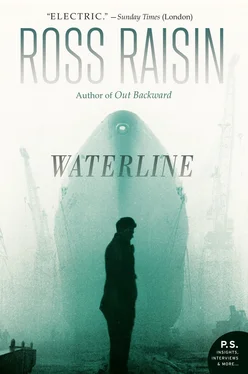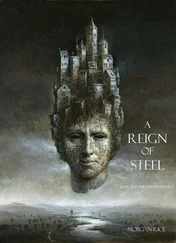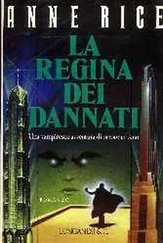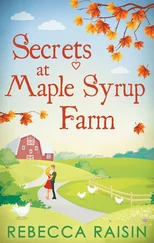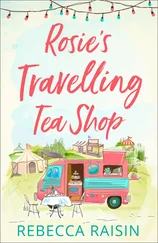Ross Raisin - Waterline
Здесь есть возможность читать онлайн «Ross Raisin - Waterline» весь текст электронной книги совершенно бесплатно (целиком полную версию без сокращений). В некоторых случаях можно слушать аудио, скачать через торрент в формате fb2 и присутствует краткое содержание. Год выпуска: 2012, Издательство: Viking, Жанр: Современная проза, на английском языке. Описание произведения, (предисловие) а так же отзывы посетителей доступны на портале библиотеки ЛибКат.
- Название:Waterline
- Автор:
- Издательство:Viking
- Жанр:
- Год:2012
- ISBN:нет данных
- Рейтинг книги:3 / 5. Голосов: 1
-
Избранное:Добавить в избранное
- Отзывы:
-
Ваша оценка:
- 60
- 1
- 2
- 3
- 4
- 5
Waterline: краткое содержание, описание и аннотация
Предлагаем к чтению аннотацию, описание, краткое содержание или предисловие (зависит от того, что написал сам автор книги «Waterline»). Если вы не нашли необходимую информацию о книге — напишите в комментариях, мы постараемся отыскать её.
Waterline — читать онлайн бесплатно полную книгу (весь текст) целиком
Ниже представлен текст книги, разбитый по страницам. Система сохранения места последней прочитанной страницы, позволяет с удобством читать онлайн бесплатно книгу «Waterline», без необходимости каждый раз заново искать на чём Вы остановились. Поставьте закладку, и сможете в любой момент перейти на страницу, на которой закончили чтение.
Интервал:
Закладка:
Describe the objects on your desk right now.
Let’s see. To answer this I will need to go over to the desk, which I don’t work at because it is an impenetrable jungle. It is too small, really, with the computer behind it balanced on a fold-out camp bed covered with a piece of cloth. There is: a Bradford City mug containing pens; three manuscripts of God’s Own Country (the novel’s title in England); tissue paper, looks used, not mine; two horse chestnuts; a booklet of new menu descriptions; a Bradford City paperweight; a cutout “win a holiday” competition page from a magazine; books; files; and, I suspect, somewhere, the pile of CVs that my girlfriend has been this morning stamping about trying to find.
Does music play any part in your writing process?
None. I struggle unless everything around me is completely silent.
What is your favorite word in the English language?
At the moment: crop-dusting. It is a word Australian waiters use to describe when they fart at one end of the restaurant and walk the smell through to the other side.
Name your pastimes.
Pubs; theatre; playing squash; camping (I’ve only done it once, but I really liked it); Bradford City.
What has been your fondest experience on a train?
A lady in Anne’s dad’s village, who has a season ticket to London, very kindly gave us a booklet of the complimentary tickets she receives. So now, whenever we go to Yorkshire (Anne is from Yorkshire too) we go in the first-class carriage, which is brilliant, because you get as much free tea as you like, they keep filling your cup up. My least fond experience on a train was when I was coming back from holiday and a Frenchman stole all of my underpants.
What are you reading these days?
Illywhacker , by Peter Carey; Herzog , by Saul Bellow; So He Takes the Dog , by Jonathan Buckley.
Can fiction save the world?
Only if you are posh. This is Anne’s answer, but I kind of agree with her.
What must you do before you die?
Write past page two of my new novel.
Visit www.AuthorTracker.com for exclusive information on your favorite HarperCollins authors.
About the Book
From the Moors to the Banks of the Clyde
Novelist Opens a New Chapter
Courtesy of the Yorkshire Post . This article originally appeared in the Yorkshire Post , Wednesday July 6 2011. By Chris Bond.
A TRENDY CAFÉ in London’s colorful Soho on a sweltering summer’s afternoon is perhaps an unlikely place to meet the author of Out Backward , a widely acclaimed debut novel set against the sparse, untamed backdrop of the North York Moors.
But the capital has been Ross Raisin’s home for the past few years, during which time he has gone from being a humble waiter to one of the most lauded young novelists of recent times, winning the Sunday Times Young Writer of the Year award in 2009 and heralded as one of the most exciting literary talents to emerge from these shores since Martin Amis.
This week sees the release of the thirty-one-year-old’s much-anticipated follow-up, Waterline , the moving story of an ordinary man who, stricken by grief following the death of his wife, struggles to come to terms with the hard, unrelenting edges of modern life. The story revolves around Mick Little, a former Glasgow shipbuilder, and takes the reader on a journey from the banks of the River Clyde to crowded streets of London.
“I wanted to write about the journey of a homeless man and the most clichéd shell of a homeless person I could think of was the rough-sleeping Glaswegian alcoholic, an often mocked and decried figure in TV and writing. I wanted to think about that stereotype as a real person and how he became this character,” explains Raisin, a former Bradford Grammar School pupil.
“It’s not really a plot-twister and part of the idea from the beginning was there would be a sense of inevitability about it which I wanted to plant in the reader’s head. I was also interested in a sense of place and industry and what happens when the industry leaves it and what this does to the people who live there, because shipbuilding is a totemic industry in west Scotland and the Clyde was the biggest shipbuilding center in the world at one time.”
In Out Backward , he wrote in Yorkshire dialect, and Raisin adopts a similar style in Waterline , this time using the Glaswegian vernacular. As well as spending time in Glasgow researching the city’s shipbuilding heritage, he spent months studying local dictionaries and working with a voice coach to get the dialect right. “The closeness of the narrative to the main character’s voice in both books meant to not use their language would have struck an odd note.”
Raisin spent three years writing Waterline , about the same length of time it took to complete Out Backward . But given the success of his debut did that create added pressure? “There was a certain amount of acclaim for my first book, but even now it seems silly and a bit odd, welcome and pleasant as it has been. But I don’t think I’ve ever taken it seriously although I did have struggles with Waterline and it would be untrue to say none of that was to do with pressure from the first one. I wrote Out Backward off my own back; nobody else wanted it or expected it, whereas with this one I’d been paid to write it so there is greater expectation.”
He admits there were times that he hit a brick wall. “You can’t just sit down and reel off page after perfect page; you have to work at it, and what I am still learning is that a lot of the process isn’t enjoyable. There is a lot of struggle and there are times when you feel insecure but that’s part of it.”
When it comes to writing, as any author worth their salt will tell you, there is no secret formula other than practice. “It’s never a eureka moment where you suddenly think ‘that’s the idea’ and you sit down and write the story,” says Raisin. “It’s usually more subtle and painful than that. It’s about finding the idea for a particular novel and finding a style that suits the idea and when you’ve got that you have the voice of that particular novel. When I finished Waterline I was happy with what I had produced and I do feel it’s a lot stronger than my first book; it’s more relevant and complex.”
Despite being feted by the publishing world and literary critics, up until a year ago Raisin still worked as a waiter at John Torode’s restaurant, Smiths of Smithfield. He says he misses the camaraderie and bustle of working in a busy restaurant. “There’s something about working a really busy shift and managing your tables that is very enjoyable. But also if I’d been writing nine to five and it had not gone well and I was feeling a bit low I would forget it instantly when I went to work. I miss working in a team and having a bit of a laugh.”
He worked on the restaurant’s top floor, which housed the fine dining area and provided the perfect opportunity to indulge in a spot of social observation. “There’s a certain social awkwardness about being in a restaurant that brings people out a little bit and makes them more interesting, especially when they’re drinking. It can make some people much less socially awkward or just very unpleasant sometimes, particularly if you’re working with the City boys,” he says.
“If you have a table of businessmen who are maybe with clients, they unthinkingly feel they have to make themselves feel bigger. Quite often they like to show they’re a man of the people by having a bit of banter with the waiter and most of the time it’s absolutely fine and enjoyable. But one of the worst instances I ever had was when there was a group in and they asked me where I was from and when I said ‘near Bradford’ one of the businessmen said something flippant about the Bradford City fire disaster which was horrible and I immediately told him he was out of order and the other men at the table didn’t realize what was going on and it changed the atmosphere completely.”
Читать дальшеИнтервал:
Закладка:
Похожие книги на «Waterline»
Представляем Вашему вниманию похожие книги на «Waterline» списком для выбора. Мы отобрали схожую по названию и смыслу литературу в надежде предоставить читателям больше вариантов отыскать новые, интересные, ещё непрочитанные произведения.
Обсуждение, отзывы о книге «Waterline» и просто собственные мнения читателей. Оставьте ваши комментарии, напишите, что Вы думаете о произведении, его смысле или главных героях. Укажите что конкретно понравилось, а что нет, и почему Вы так считаете.
